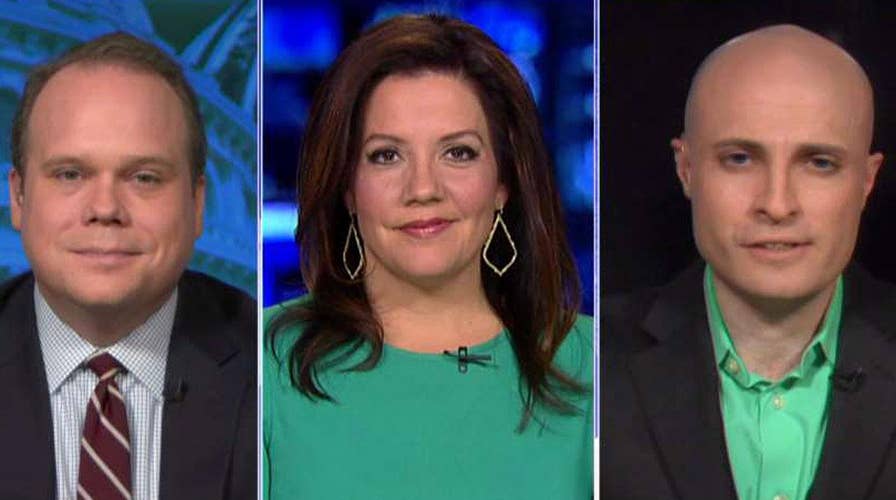The Report Card: Grading week six of Trump administration
'The First 100 Days' panel grades the president's performance
President Trump is expected to sign a revised executive order early next week banning travel from several Middle Eastern and African counties, the president’s latest effort to prevent radical Islamic terrorism on U.S. soil.
A senior administration official confirmed with Fox News on Saturday that Trump’s new executive order could come as early as Monday or Tuesday.
Trump was elected in November in large part on a national security platform that included stronger U.S. borders and putting an end to ISIS and other radical Islamic terror groups.
One of his first official acts after taking office in late-January was to sign executive orders that temporarily halted the U.S. refugee program and travel from seven mostly-Muslim, Middle Eastern and African countries.
The orders have been held up in a federal appeals court since early-February, with Trump weighing his options but making clear as recently as last week that he fully intends to fulfill his campaign pledge.
“The vast majority of individuals convicted of terrorism and terrorism-related offenses since 9/11 came here from outside of our country,” Trump said during his address Tuesday night to a joint session of Congress.
“It is not compassionate, but reckless to allow uncontrolled entry from places where proper vetting cannot occur,” he said. “We cannot allow a beachhead of terrorism to form inside America. And we cannot allow our nation to become a sanctuary for extremists … That is why my administration has been working on improved vetting procedures, and we will shortly take new steps to keep our nation safe.”
The federal appeals court temporarily blocked parts of Trump’s executive orders and halted the travel ban, then denied the administration’s request to immediately lift the ban. Critics of the ban argue it was hastily crafted with parts lacking adequate constitutional authority.
To be sure, uncertainty about the status of green card holders caused confusion and sparked major protests at international airports across the country on the Saturday after Trump signed the executive order, which was followed by administration officials promptly issuing guidance on legal permanent U.S. residents, or green card holders, to exempt them from the ban.
Fox News' Serafin Gomez contributed to this report.













































